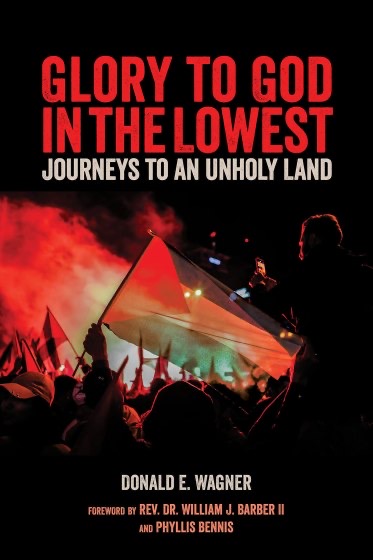
This is a truly inspirational story of how a young conservative white evangelical Christian became a passionate life-long campaigner for Palestinian rights.
The book reveals the heavy price Don has paid for his commitment to justice, peace and reconciliation. Don clearly stands in the subversive but non-violent tradition of Mohandas Ghandi, Martin Luther King and Nelson Mandella.
I simply could not put this book down. It is a compelling, detailed, eye-witness commentary on the unfolding tragedy of Palestine over the past 40 years. It is also a searing indictment of the failure of the West, tragically with the complicity of the Church, to hold Israel accountable to its obligations under international law and repeated UN Resolutions.
Don does not mince his words, describing Zionism for what it has become, a “brutal Israeli Apartheid-settler colonial regime.” p. 20.
At the same time, the book records the pioneering role Don and others have played in galvanising mainstream Western Christian engagement in the Middle East and in particular, advocating for, and partnering with, Palestinian Christians.

I have known Don personally for over 25 years and it has been a privilege to accompany him on several significant journeys to Palestine. Indeed, his early writings were the inspiration for my own PhD which examined the history, theology and politics of Christian Zionism.
Although I am confident this book will sell many copies, I am sure that what matters more to Don will be the extent to which readers are motivated to engage in the struggle for truth, justice and peace. For this is also a practical book. It is a call to action, indeed, a ‘Cry for Hope’. In the concluding chapters Don helpfully draws attention to numerous resources and initiatives which will enable readers to advocate and connect with fellow Christians in Palestine.
There are so many excellent quotes. I’ll restrain myself to one: “Palestine becomes at once a metaphor and a living reality of a people rising from the ashes of defeat to claim what is rightfully theirs – justice and only justice.” p. 20.
After serving for five years as a pastor in a remarkable Black church, Donald Wagner comes to fully understand the original sin of racism. As his journey continues, he encounters another marginalised people the Palestinians and witnesses their struggle for justice and equality. Touched by their resilience and fight against injustice, he leaves the pastorate to assume full time work as an advocate for Palestinian political and human rights.
The memoir begins in mid-September 1982, with a gut-wrenching day interviewing survivors of the Sabra-Shatila massacre in Lebanon, as they wept and waited for the bodies of family members to be pulled from the rubble. Donald Wagner’s conversation with the local Imam ended with a challenge: You must return home and tell what you have seen. This is all we ask. Go back and tell the truth.” Glory To God in the Lowest is a metaphor for his counter intuitive journey with the victims of the “chosen people” in the “unholy land”.
I am sure I am not alone in acknowledging a deep debt of gratitude to Don for his unflinching example of what it means to follow in the footsteps of Christ.
